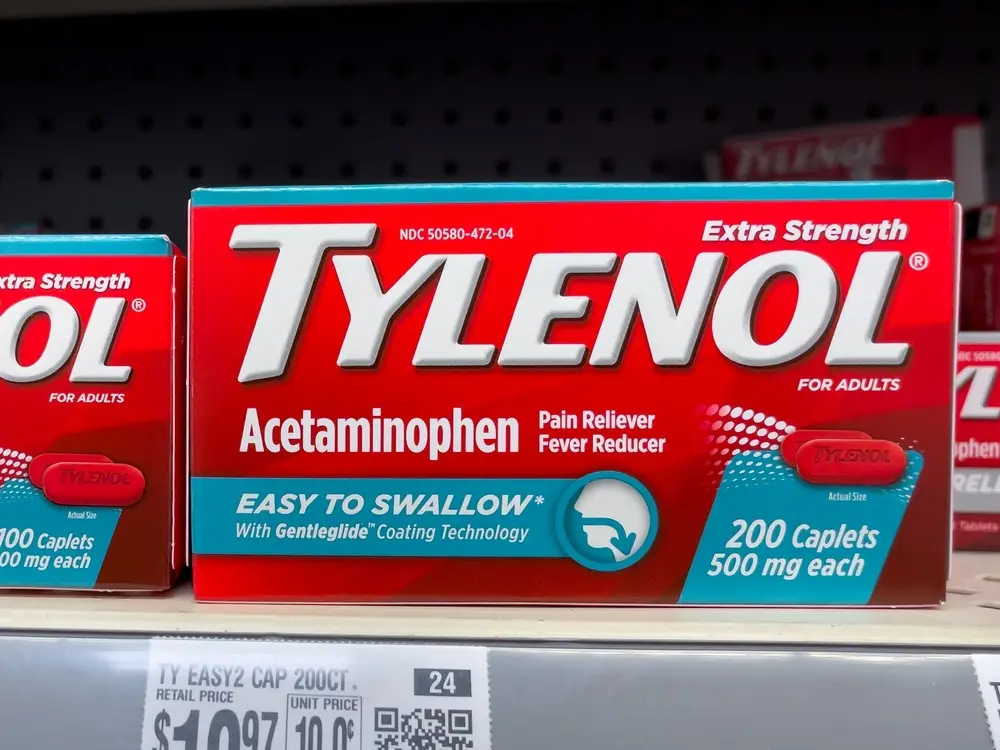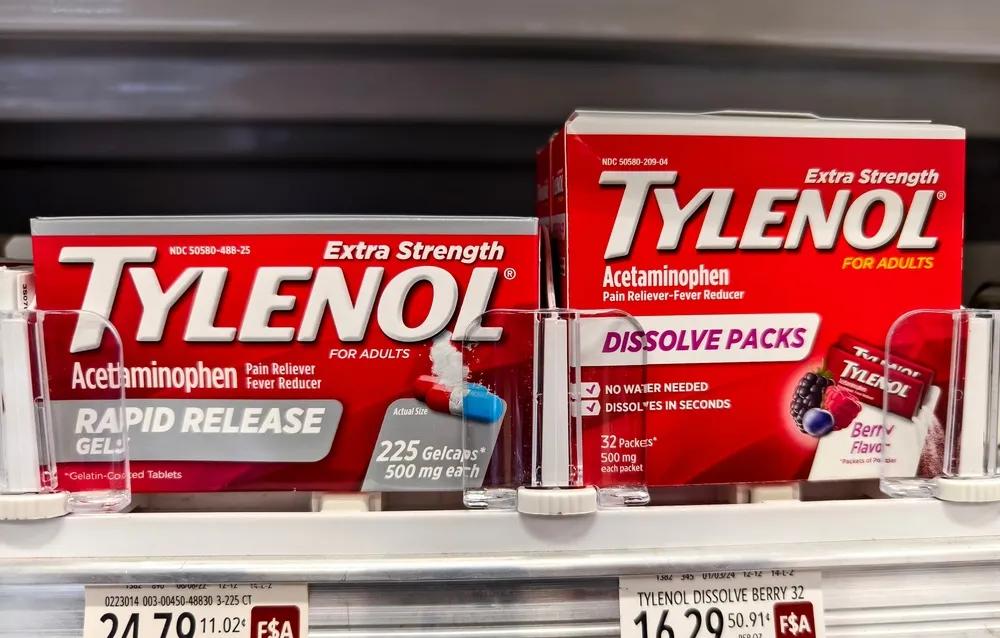If you took Tylenol (acetaminophen) during pregnancy, you’re not alone. Now, thousands of parents across the U.S. are taking legal action. Recent studies suggest that prenatal exposure to acetaminophen may increase the risk of autism spectrum disorder (ASD) and attention-deficit/hyperactivity disorder (ADHD) in children.
As a result, parents are filing lawsuits against Johnson & Johnson and major retailers like Walmart, CVS, Target, Walgreens, and Costco, claiming they failed to warn consumers about these potential dangers. The growing Tylenol Autism Class Action Lawsuit could become one of the largest birth injury lawsuits in U.S. history, raising serious questions about what expectant parents were told, and what the companies behind one of America’s most trusted pain relievers really knew.
What Is the Tylenol Autism Lawsuit About?
The Tylenol autism lawsuit centers around allegations that acetaminophen, the active ingredient in Tylenol, may be linked to higher rates of autism and ADHD when used during pregnancy. Families claim that Johnson & Johnson and major retailers knew or should have known about this risk but failed to include adequate warnings on product labels.
Several scientific studies have fueled the growing legal movement. A 2018 study in the American Journal of Epidemiology found that acetaminophen use during pregnancy is associated with an increased risk for ASD, ADHD, and hyperactivity symptoms. Another NIH- and Johns Hopkins–funded study analyzed umbilical cord plasma and found that children who had higher levels of acetaminophen in their umbilical cord were more likely to develop ADHD or autism as children.
The lawsuits allege that despite mounting evidence, Tylenol was still marketed as safe for pregnant women, a message that has influenced millions of parents for decades. Plaintiffs argue that had they been warned of potential Tylenol pregnancy risks, they would have chosen safer alternatives.
In September 2025, the U.S. Food and Drug Administration (FDA) issued a notice acknowledging studies suggesting a possible link between acetaminophen and neurodevelopmental disorders. The agency stated that while acetaminophen remains one of the safest pain relievers during pregnancy, prolonged or high-dose use could increase the risk of developmental issues such as ASD and ADHD. The FDA also announced plans to update Tylenol’s label with new safety information, an important development that could strengthen the plaintiffs’ claims.

Who Is Involved in the Case?
The lawsuits are part of a large Multidistrict Litigation (MDL), meaning cases from across the country have been combined for efficiency under one federal court. The Tylenol MDL is currently being heard in the Southern District of New York, where thousands of claims have been consolidated.
Defendants include Johnson & Johnson, the maker of Tylenol, as well as major retailers such as Walmart, CVS, Walgreens, Target, and Costco, all of whom sold acetaminophen-based products marketed as safe for pregnant women.
Parents and guardians filing these lawsuits are typically individuals who took Tylenol or generic acetaminophen during pregnancy and later had a child diagnosed with autism spectrum disorder (ASD) or attention-deficit/hyperactivity disorder (ADHD). These families allege they were never adequately warned of the Tylenol side effects or potential prenatal exposure risks.
Who Qualifies and How Much Can You Claim?
If you used Tylenol or acetaminophen while pregnant and your child was later diagnosed with autism or ADHD, you may qualify to join the ongoing Tylenol Autism Class Action Lawsuit. Eligibility typically includes:
- Mothers who used Tylenol or acetaminophen during pregnancy.
- Children who were later diagnosed with autism spectrum disorder (ASD) or ADHD.
- Families who purchased the product from retailers such as Walmart, CVS, Target, Walgreens, or Costco.
Since the Tylenol MDL is still in progress, no settlement amounts have been finalized. However, if successful, the lawsuits could lead to significant financial compensation. Settlements in similar birth injury and pharmaceutical lawsuits have ranged from $50,000 to over $500,000 per claimant, depending on factors such as medical costs, emotional distress, and the severity of the child’s diagnosis.
Plaintiffs may also receive compensation for future care expenses, therapy, and loss of quality of life. Additionally, these lawsuits aim to hold large corporations accountable for failing to warn families about acetaminophen’s autism and ADHD risks and to ensure that future parents receive accurate safety information.
How to Submit Your Claim
If you believe you qualify, the first step is to consult a law firm handling Tylenol or acetaminophen autism lawsuits. Firms such as TorHoerman Law, Dolman Law Group, and Hagens Berman are currently reviewing claims.
You’ll need to provide documentation of your Tylenol or acetaminophen use during pregnancy and your child’s medical diagnosis. This can include pharmacy records, receipts, prenatal medical history, or notes from your obstetrician. If you’re unsure whether your claim meets the requirements, a class action attorney can help determine eligibility.
Once your case is accepted, it may be added to the Tylenol Multidistrict Litigation (MDL). You won’t necessarily need to appear in court individually, as your claim will be represented collectively with others. If the MDL results in a settlement or trial verdict, you will be notified of your eligibility to receive compensation.
It’s also important to act quickly. Like many product liability lawsuits, Tylenol claims are subject to statutes of limitations that vary by state. Contacting a lawyer as soon as possible helps ensure you don’t miss the filing deadline.
Frequently Asked Questions (FAQ)
While studies show an association between prenatal acetaminophen exposure and neurodevelopmental disorders, scientists have not confirmed a direct causal link. However, mounting research and FDA attention have prompted widespread legal action.
Yes. The lawsuits include all acetaminophen-based products, not just brand-name Tylenol.
Multidistrict litigation (MDLs) can take several years. The first bellwether trials, which test the strength of evidence, are expected to begin in late 2025 or 2026.
No. Class action and MDL attorneys typically work on a contingency basis, meaning they only collect fees if you win or receive a settlement.
At this time, only parents whose children have been diagnosed with ASD or ADHD are eligible. However, staying informed about future FDA findings and litigation updates is recommended.




Add Comment